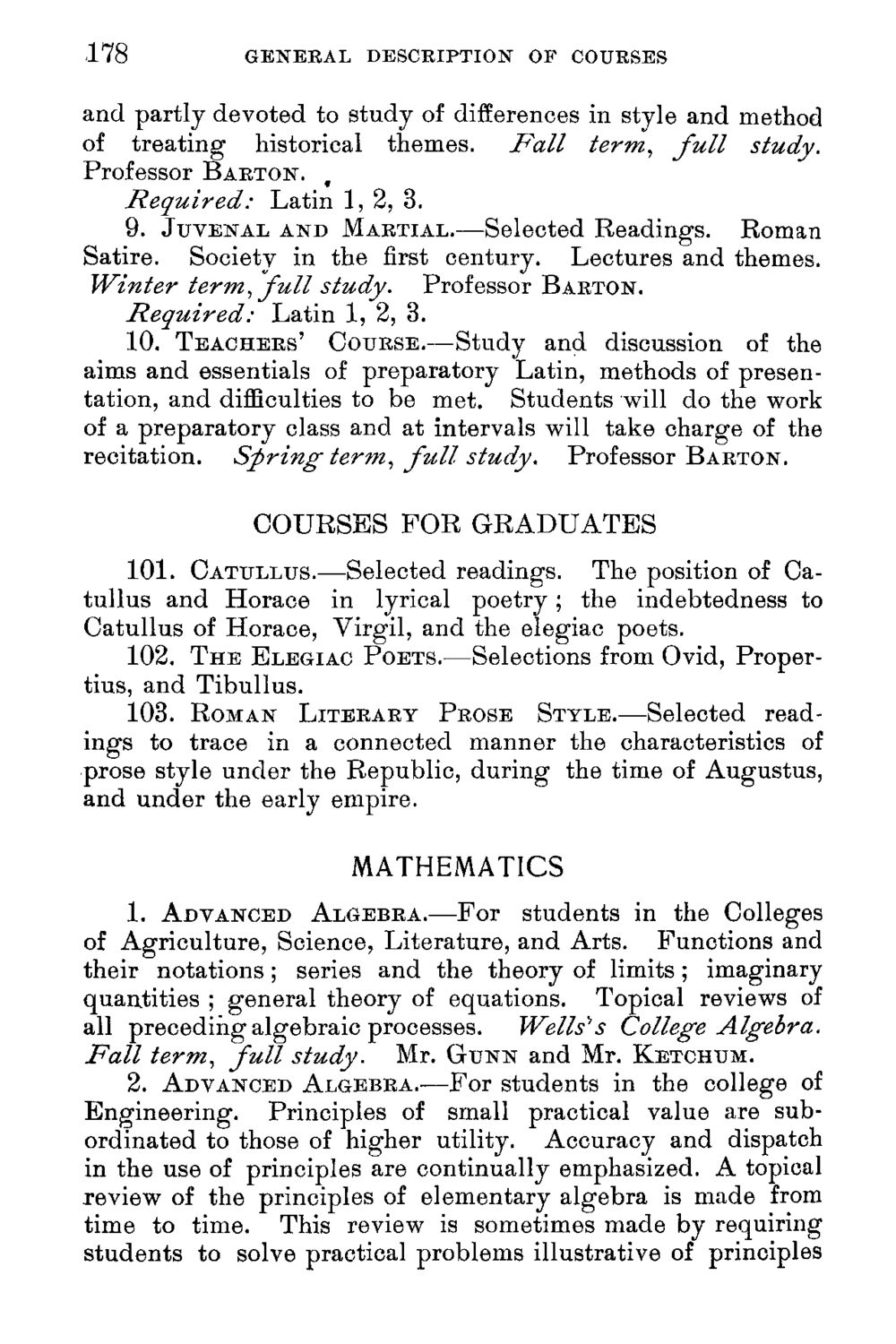| |
| |
Caption: Course Catalog - 1895-1896
This is a reduced-resolution page image for fast online browsing.

EXTRACTED TEXT FROM PAGE:
178 GENERAL DESCRIPTION OF COURSES and partly devoted to study of differences in style and method of treating historical themes. Fall term, full study. Professor BARTON. f Required: Latin 1, 2, 3. 9. JUVENAL AND MARTIAL.—Selected Readings. Roman Satire. Societv in the first century. Lectures and themes. Winter term, full study. Professor BARTON. Required: Latin 1, 2, 3. 10. TEACHERS' COURSE.—Study and discussion of the aims and essentials of preparatory Latin, methods of presentation, and difficulties to be met. Students will do the work of a preparatory class and at intervals will take charge of the recitation. Spring term, full study. Professor BARTON. COURSES FOR GRADUATES 101. CATULLUS.—Selected readings. The position of Catullus and Horace in lyrical poetry; the indebtedness to Catullus of Horace, Virgil, and the elegiac poets. 102. THE ELEGIAC POETS.—Selections from Ovid, Propertius, and Tibullus. 103. ROMAN LITERARY PROSE STYLE.—Selected readings to trace in a connected manner the characteristics of prose style under the Republic, during the time of Augustus, and under the early empire. MATHEMATICS 1. ADVANCED ALGEBRA.—For students in the Colleges of Agriculture, Science, Literature, and Arts. Functions and their notations; series and the theory of limits; imaginary quantities ; general theory of equations. Topical reviews of all preceding algebraic processes. Wells''s College Algebra. Fall term, full study. Mr. GUNN and Mr. KETCHUM. 2. ADVANCED ALGEBRA.—For students in the college of Engineering. Principles of small practical value are subordinated to those of higher utility. Accuracy and dispatch in the use of principles are continually emphasized. A topical review of the principles of elementary algebra is made from time to time. This review is sometimes made by requiring students to solve practical problems illustrative of principles
| |